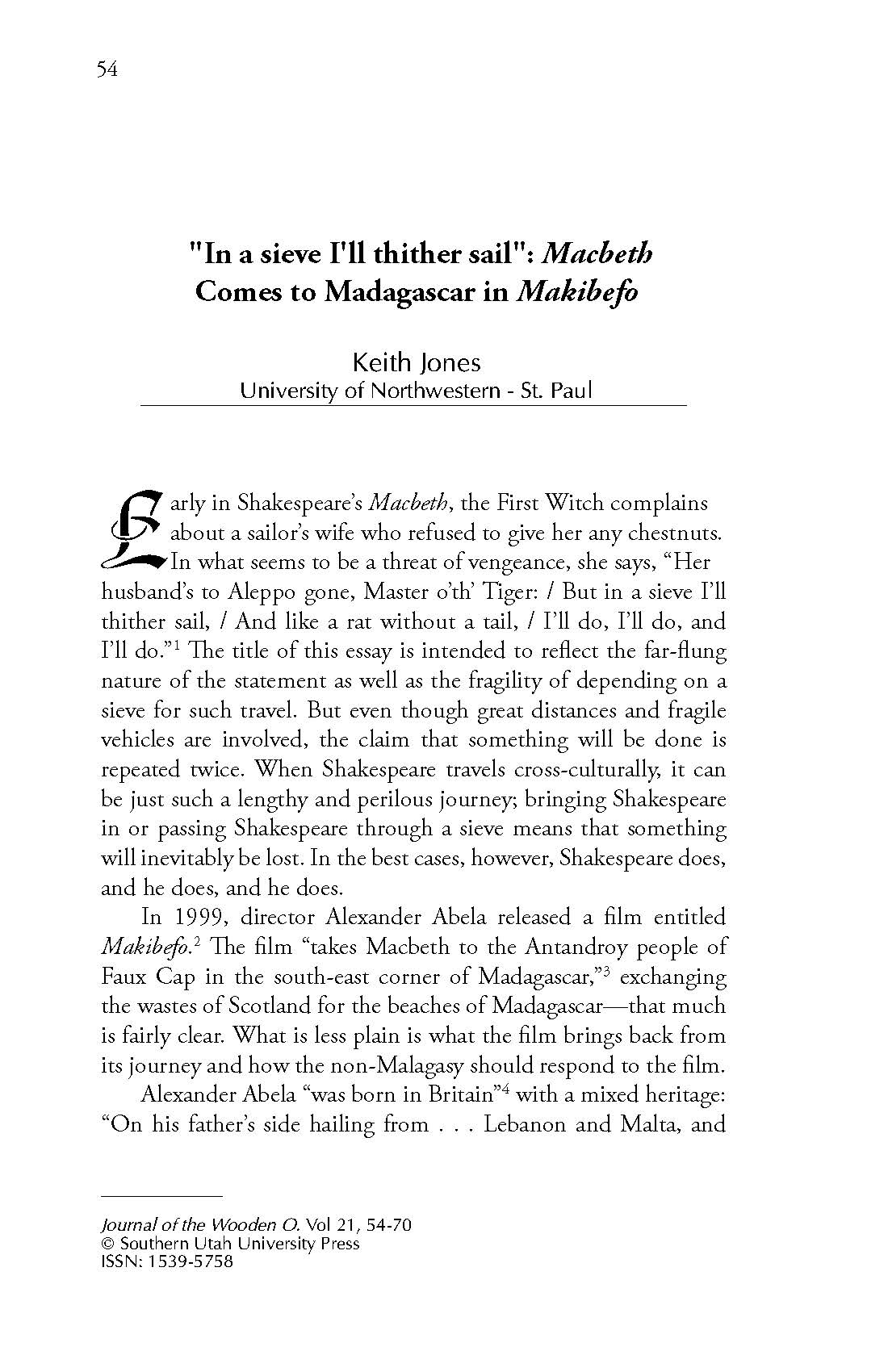"In a sieve I'll thither sail" Macbeth Comes to Madagascar in Makibefo
Main Article Content
Abstract
Early in Shakespeare’s Macbeth, the First Witch complains about a sailor’s wife who refused to give her any chestnuts. In what seems to be a threat of vengeance, she says, “Her husband’s to Aleppo gone, Master o’th’ Tiger: / But in a sieve I’ll thither sail, / And like a rat without a tail, / I’ll do, I’ll do, and I’ll do.”1 The title of this essay is intended to reflect the far-flung nature of the statement as well as the fragility of depending on a sieve for such travel. But even though great distances and fragile vehicles are involved, the claim that something will be done is repeated twice. When Shakespeare travels cross-culturally, it can be just such a lengthy and perilous journey; bringing Shakespeare in or passing Shakespeare through a sieve means that something will inevitably be lost. In the best cases, however, Shakespeare does, and he does, and he does.
